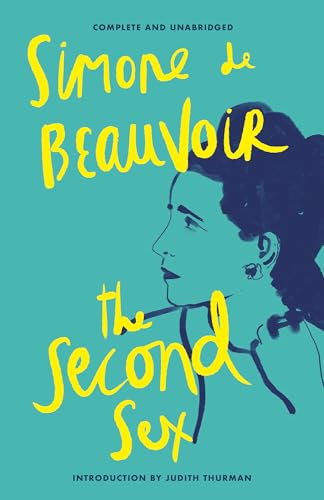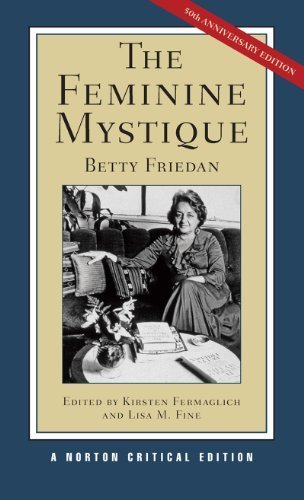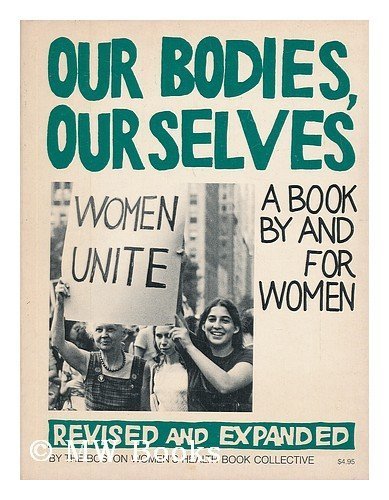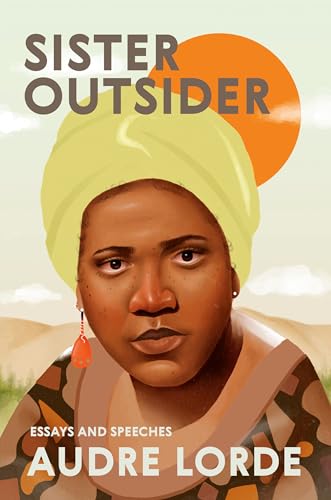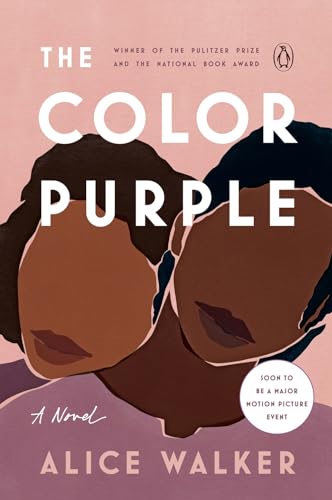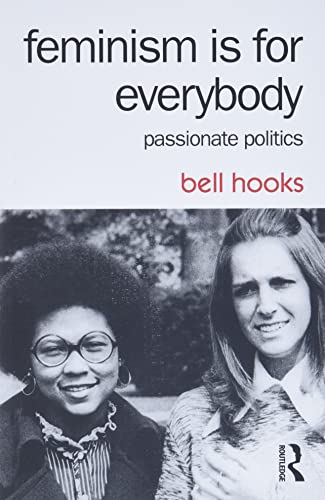
Introduction to Feminist Literature
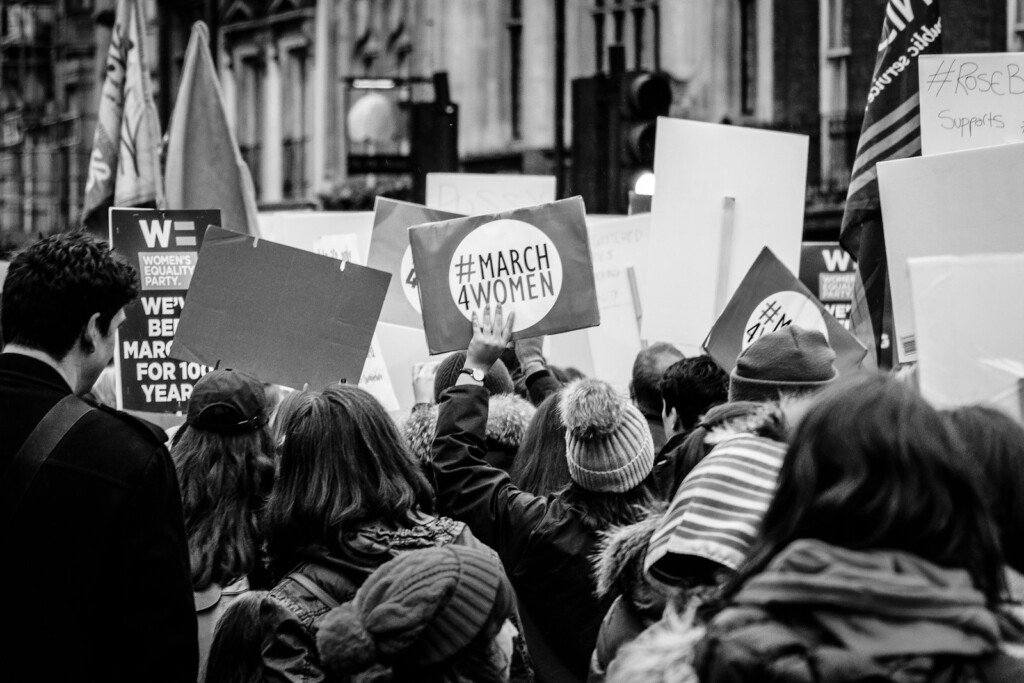
Feminist literature plays a crucial role in the exploration of societal structures, advocating for women’s rights, and challenging norms, particularly throughout the second and third waves of feminism in America. This body of work serves not only as an expression of feminist ideas but also as a reflection of the historical context in which these movements arose.
The literary contributions from various authors have significantly impacted societal perceptions and have helped in articulating the needs and aspirations of women.
The second wave of feminism, which gained prominence in the 1960s and continued into the 1980s, emphasized issues such as reproductive rights, workplace equality, and sexual liberation. Women writers during this era utilized their literature to raise awareness about the challenges faced by women, utilizing storytelling as a vehicle for critique and advocacy. Works from authors such as Betty Friedan and Gloria Steinem helped to galvanize public sentiment, paving the way for legislative changes and shifts in cultural attitudes towards gender equality.
As the feminist movement evolved into the third wave, beginning in the 1990s, literature began to embrace a more intersectional approach, recognizing the diverse experiences of women across different races, classes, and sexual orientations. Key figures like bell hooks and Judith Butler expanded the conversation surrounding feminism, emphasizing the importance of inclusivity within the movement. Their writings challenged the previous norms set by earlier feminists, showcasing how literature serves as both a mirror and a hammer—reflecting societal flaws while also forging new pathways in the fight for gender equality.
Overall, feminist literature books not only highlight personal narratives but also historicize the socio-political movements that shape our understanding of feminism today. The diversity of voices and perspectives encapsulated in these texts continues to be an invaluable resource for those looking to comprehend the intricacies of the feminist movement in America.
Before we begin, please note that all of the links to books below HEAVILY support my blog and my efforts to help expand the accessibility of this information to everyone.
I do this all by myself.
Any/all support, whether it be your sharing on social media, purchasing through any of my affiliates, or even commenting here is GREATLY appreciated, beyond what I can express in this post.
If you would like to purchase multiple items at once, please visit the list I have created here.
1. The Second Sex by Simone de Beauvoir
My personal favorite, Published in 1949, by Simone de Beauvoir, “The Second Sex” stands as a monumental piece in feminist literature books and one of the seminal texts of feminist philosophy.
In this groundbreaking work, Beauvoir examines the historical and social circumstances surrounding the treatment of women, arguing that they have been systematically relegated to a secondary position in society.
She introduces the concept of ‘the other,’ which encapsulates how women have been defined in relation to men, stripped of their individuality and agency. She subtly notates to this by drawing an example in the book to show that even BABIES are not left without this comparative complexity. It is illustrated by two children in the hospital being given clothing stating “I’m a boy!” and “it’s a girl!” showing that the boys are the one that are people, and girls even at birth are an “IT”, much like an object.
Beauvoir’s analysis is deeply rooted in existentialism, a philosophical framework that emphasizes individual freedom and responsibility.
She contends that women have been conditioned to accept their ‘assigned’ roles, which often leads to a sense of oppression and existential angst. By asserting that “one is not born, but rather becomes, a woman,” Simone highlights the societal constructs that shape female identity, laying the groundwork for later feminist thinkers. This existential perspective challenges women to recognize their potential and liberate themselves from societal constraints, advocating for personal and collective emancipation.
The text also explores various dimensions of women’s lives, including sexuality, motherhood, and economic independence, illuminating the multifaceted challenges they face in their pursuit of equality.
Simone De Beauvoir’s argument is not merely an observation of women’s plight but a clarion call for liberation; she argues that true freedom can only be achieved through the dismantling of patriarchal structures that perpetrate such hazards. She believes that we must overthrow the culture of corruption that silences women. The philosophical foundations of “The Second Sex” resonate through the waves of feminism that followed, influencing feminist books and activism across generations. This book invites you to critically reflect on the role women play in society. Ultimately, The Second Sex is encouraging them to reclaim their identity beyond societal definitions.
2. The Feminine Mystique by Betty Friedan
Published back in 1963, Betty Friedan’s The Feminine Mystique is a pivotal work in feminist literature, credited with igniting the second wave of feminism in the United States.
This book meticulously dissects the lives of suburban housewives, who, despite seemingly perfect lives, experienced profound dissatisfaction and a sense of unfulfillment that Friedan famously termed “the problem that has no name.” Her insights highlighted how the idealized image of women as devoted wives and mothers served to confine their identities and contributions to society.
Friedan argued that the post-World War II era created a societal framework that designated women to the domestic sphere, marginalizing their aspirations for personal development and intellectual engagement. The pressures of consumerism and the idealization of marriage further contributed to a culture where women were expected to find meaning solely through their roles as homemakers. This systemic disenfranchisement generated an undercurrent of discontent, resulting in feelings of restlessness and identity crises among many women.
Through interviews and extensive research, Friedan showcased the voices of these women, detailing their struggles and the societal constraints that held them captive in their roles. By articulating the pervasive sense of isolation and lack of purpose that many experienced, The Feminine Mystique encouraged women to reevaluate their positions in the world and empowered them to reclaim their autonomy.
Friedan had done one of the most important things for “housewives” all across the western world. She opened dialogues about women’s rights and reinforced the idea that feminism was necessary for societal progress.
Friedan’s emphasis on self-awareness and personal agency reshaped the conversation around gender roles, establishing a foundation for the feminist movement that would follow. The impact of her literature continues to resonate today, illustrating the enduring relevance of her arguments in the ongoing quest for equality.
3. “Our Bodies, Ourselves” by Boston Women’s Health Book Collective
Not long after Friedan, in 1971, “Our Bodies, Ourselves” emerged as a groundbreaking resource in feminist literature books, addressing essential topics related to women’s health and sexuality.
This influential text, developed by the Boston Women’s Health Book Collective, was pioneering in its approach to integrating personal experiences with reliable medical knowledge. As a result, it empowered countless women with the very information they needed to take charge of their bodies and health.
The book served as a crucial vehicle for feminist ideals, promoting the understanding that women should have autonomy over their own bodies, a core tenet of feminism.
By presenting medical information alongside personal narratives, “Our Bodies, Ourselves” encouraged readers to question the traditionally male-dominated medical establishment and to become advocates for their own health.
This marked an important shift towards the personalization of medical knowledge in feminist books, emphasizing that women’s experiences and voices matter in discussions about their well-being.
Furthermore, the text played a significant role in the wider feminist movement, contributing to discussions around reproductive rights and the importance of informed consent in medical settings.
It highlighted issues such as contraception, pregnancy, and sexually transmitted infections in a manner that was accessible and relatable. By doing so, it inspired a generation of women to view their health not just as a series of medical concerns but as an integral part of their feminist identity and empowerment.
It not only provided valuable insights into women’s health but also solidified the significance of education and empowerment in the feminist narrative. Through its focus on personal agency, the book exemplifies the transformative nature of feminist literature and its capacity to influence societal perceptions of women’s health issues.
“Our Bodies, Ourselves” remains a seminal work that continues to resonate with readers today.
what’s more is that the title has been re-hashed and updated for newer decades and later stages of life.
4. Sister Outsider by Audre Lorde
Audre Lorde’s Sister Outsider is a vital compendium of essays and speeches that encapsulates the complexities and nuances of identity, particularly in the context of race, gender, and sexuality. Lorde, a self-identified Black lesbian feminist, uses her powerful voice to advocate for social change, making her work essential reading in the canon of feminist literature books. Her writings provide critical commentary on the societal structures that uphold oppression and marginalization, emphasizing the interconnected nature of various forms of discrimination.
In Sister Outsider, Lorde identifies intersectionality as a fundamental aspect of feminism. She argues that the feminist movement must encompass the diverse experiences of all women, particularly those from marginalized identities. By acknowledging the differences among women, including race and sexual orientation, Lorde pushes for a broader understanding of feminism that does not isolate or privilege any particular group. This call for inclusivity has made her work resonate deeply with many contemporary feminist movements, reinforcing the idea that feminism must evolve to address the multifaceted realities faced by individuals.
One of the critical themes in Lorde’s writings is the importance of embracing differences rather than viewing them as divisive. She challenges readers to recognize that recognizing and valuing diversity is crucial in the fight for equality. Her assertiveness in addressing uncomfortable truths serves as a rallying cry for solidarity among women of various backgrounds. Sister Outsider ultimately demonstrates that feminism cannot thrive in a vacuum; it requires an acknowledgment of the varied experiences and struggles faced by women. Lorde’s contributions firmly establish her work as a cornerstone in the ongoing dialogue surrounding feminist literature and feminist activism.
5. Gender Trouble by Judith Butler
Judith Butler’s by far my favorite author when it comes to feminism and intersectionality.
Her most impactful work, Gender Trouble: Feminism and the Subversion of Identity, published in 1990, profoundly challenged conventional understandings of gender, asserting that it is not a fixed attribute but rather a performance shaped by societal norms.
By introducing the concept of gender as a performative act, Butler argued that individuals enact and perpetuate their gender identities through their behaviors and expressions.
This pivotal perspective contributed significantly to feminist literature books, influencing both second and third wave feminism in America.
Butler critiques the rigid binaries of gender—male/female, masculine/feminine—and highlights how these distinctions serve to uphold patriarchal structures.
She posits that these binaries are socially constructed, rather than inherent traits, providing a lens through which to view the complexities of identity. Through this lens, Butler invites you to consider how societal expectations dictate the performance of gender roles.
This notion resonates deeply within feminist thought, encouraging a reexamination of the scripts society has prescribed for individuals based on their perceived gender.
Butler’s work underscores the idea that challenging the entrenched norms surrounding femininity and masculinity is essential for the broader feminist movement.
By deconstructing existing notions of gender, Butler offers a means to liberate individuals from oppressive societal expectations.
The impact of Gender Trouble extends beyond academic discourse; it has fueled debates within feminist theory, queer theory, and various social movements, marking it as a pivotal text in understanding the evolution of feminist literature books.
Ultimately, Butler’s analysis presents a framework for exploring the fluidity of identity, paving the way for continued advocacy for gender inclusivity and redefined expressions of femininity and masculinity.
6. The Color Purple by Alice Walker
“The Color Purple,” a profound novel by Alice Walker, stands as a pivotal work in the canon of feminist literature books. Published in 1982, this Pulitzer Prize-winning narrative unfolds the story of Celie, an African American woman facing oppressive forces of racism and sexism in the early 20th century American South. Through Celie’s poignant journey towards empowerment and self-discovery, Walker vividly illustrates the intersectionality of race and gender, which is a fundamental aspect of feminism.
Central to the narrative are themes of resilience, sisterhood, and the quest for identity. The relationships between female characters serve as crucial elements that foster solidarity among women. Celie’s bond with other characters, such as Shug Avery and Sofia, highlights the strength gained from female support and companionship. This portrayal underscores the significance of sisterhood in challenging societal norms and achieving personal growth, resonating deeply within feminist discourse. The novel showcases how marginalized voices can unite in the fight against systemic oppression.
Walker transcends traditional storytelling by incorporating letters as a narrative device, allowing readers intimate access to Celie’s evolving consciousness. The epistolary format not only enhances emotional engagement but also mirrors the empowerment experienced by women as they reclaim their voices. Furthermore, “The Color Purple” enriches both feminist and African American literature by addressing the historical injustices faced by African American women, a perspective often overlooked in broader feminist literature discussions.
Through its raw and honest exploration of self-identity, love, and resilience, the novel invites readers to reflect on the complexities of feminism and the diverse experiences of women. In conclusion, Alice Walker’s powerful narrative remains an essential reading in understanding the multifaceted nature of feminism and the historic struggles for empowerment.
7. Feminism Is for Everybody by bell hooks
bell hooks (yes, lowercase b and h) writes a myriad of books around the topic of gender.
My personal favorite, which I have on audio book is called “the will to change.” It is also incredibly important to the concept of gender and how to dissect the patriarchy’s impact on it, but it focuses moreso on the masculine treatment that patriarchy posits towards men.
As such, your best bet for feminist literature by bell hooks is appropriately called:
“feminism is for everybody: passionate politics.”
In it, she presents a compelling argument for a more inclusive approach to feminism. Unlike traditional feminist literature that often appeals to a select demographic, hooks emphasizes that feminism must address the needs and experiences of all women, regardless of race, class, or sexual orientation. This advocacy for inclusivity is one of the cornerstone principles of her feminist philosophy, making her work accessible to a broader audience.
A significant theme in hooks’ writing is the vital connection between love, community, and feminism. She posits that love should be the driving force behind feminist activism, not only in personal relationships but also in broader societal structures. hooks argues that genuine love fosters an environment of trust and mutual respect, which are essential for forming cohesive communities.
hooks encourages readers to view feminism as a movement that seeks to dismantle oppressive systems, ultimately advocating for social justice that encompasses not only gender equality but also racial and economic equity.
Additionally, hooks challenges the misconception that feminism is synonymous with man-hating. Instead, she underscores that the feminist movement should aim for the liberation of all people, including men.
By fostering dialogue and understanding among diverse groups, feminism becomes a tool for collective empowerment rather than division. This perspective resonates with many contemporary readers who find validation in hooks’ assertion that feminism can indeed be a pathway to justice and community building.
“Feminism Is for Everybody” serves as an important text in feminist literature that advocates for a more inclusive and loving approach to feminism, emphasizing its critical role in achieving social justice for all individuals.
8. The Handmaid’s Tale by Margaret Atwood
Margaret Atwood’s “The Handmaid’s Tale” is a pivotal work in feminist literature that portrays a dystopian future where women’s rights have been stripped away, resulting in a society where they are reduced to mere vessels for reproduction. Atwood crafts a narrative that serves both as a warning and a critique of patriarchal norms, shedding light on the potential consequences of allowing such ideologies to govern society. The protagonist, Offred, navigates a world in which women are denied autonomy and are subjected to the whims of a totalitarian regime, emphasizing the alarming implications of reproductive control and loss of individual freedoms.
In this novel, the subjugation of women reflects the extreme lengths to which gender inequality can manifest. Atwood’s depiction of a theocratic society underscores the fragility of women’s rights, alerting readers to the dangers of complacency regarding feminist ideals. The use of women as “Handmaids,” who are forced to bear children for elite couples, encapsulates the oppressive nature of gender politics and the ongoing struggle faced by women to maintain control over their own bodies. This alarming scenario challenges readers to consider the ongoing relevance of feminism and the importance of safeguarding hard-won rights.
“The Handmaid’s Tale” resonates deeply within feminist literature, as it continues to inspire discussions about bodily autonomy and the potential rollback of women’s rights in the face of rising conservatism. Atwood’s work effectively captures the essence of feminist discourse by warning against the dangers of rigid gender roles and the systemic oppression of women. As we delve into this iconic narrative, it becomes clear that “The Handmaid’s Tale” is not only a work of fiction but also a necessary reflection on the precarious nature of freedom and the vital importance of feminist advocacy in society.
Before I wrap up and give you one last goody, I’d like to reiterate and note that all of the links to books above DO support my blog and my efforts to help expand the accessibility of this information to everyone.
I do this all by myself and any/all support, whether it be your sharing on social media, purchasing through any of my affiliates, or even commenting here is GREATLY appreciated, beyond what I can express in this post.
If you would like to purchase multiple items at once, please visit the list I have created here.
(Bonus) Wild: From Lost to Found on the Pacific Crest Trail by Cheryl Strayed
This one isn’t perse about feminism in and of it’s self, but I feel still belongs on the list.
The discourse on feminism between people nowadays usually winds down into “Wage gap, oppression, rights revocation” and not often enough about women’s struggles in daily life and how they are told how to be.
Cheryl Strayed’s memoir, “Wild: From Lost to Found on the Pacific Crest Trail,” chronicles her transformative journey of self-discovery and resilience. Following the devastating loss of her mother and the subsequent unraveling of her personal life, Strayed embarks on an arduous hike along the Pacific Crest Trail.
This journey, while deeply personal, mirrors broader feminist themes, particularly the struggles faced by women in reclaiming their identities and finding strength in adversity.
Throughout her trek, Strayed confronts both physical and emotional challenges, embodying the feminist ideal of perseverance in the face of hardship. Her experiences highlights something that I feel is the core of feminist ideology: The importance of personal autonomy and the intrinsic strength that women possess.
As she navigates the external wilderness, Strayed simultaneously delves into the internal wilderness of grief, abandonment, and self-doubt, portraying the multifaceted struggles women endure on their paths to self-fulfillment.
This dual exploration presents a powerful narrative that resonates with the core tenets of feminism: reclaiming one’s narrative and asserting agency in a world that often seeks to diminish women’s voices.
“Wild” serves as an emblematic work within feminist literature books, emphasizing the necessity of self-reflection and the pursuit of personal goals.
This isn’t some essay on performative theatrics to adhere to gender expression, rather
Strayed’s story illustrates that the journey to understanding oneself can be both a treacherous and enlightening experience, which is very akin to the broader fight for women’s rights and social equality throughout second and third wave feminism.
Through her candid reflections and raw honesty, Strayed not only chronicles her adventures but also inspires readers, especially women, to engage in their own journeys of self-discovery and empowerment.
All in All, I would say “Wild” is more than a memoir; it is a powerful feminist narrative that highlights the essence of resilience and the importance of reclaiming one’s identity amidst life’s challenges.
Strayed’s journey resonates as a compelling reminder of the inherent strength that women carry within themselves and it shouldn’t be removed from YOUR readership just because it isn’t a piece of work in a curriculum on feminism. Use this last read as a way to gain a bit more of a human based lens, as a opposed to an academic/talking point view about feminism.

